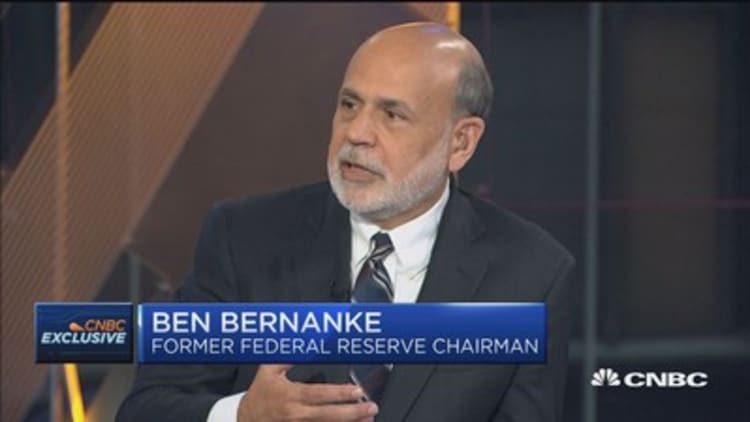
Former Federal Reserve Chair Ben Bernanke mostly praised the border adjustment tax proposal and suggested that Republicans just have not presented the plan in the best way.
The plan is "very interesting. Some of the best public finance economists, Alan Auerbach, people like that, have advocated this system and I think it's been sold in
"It's not really about trade. It's not really about imports and exports. It's about where revenue's taxed. The idea is revenues should be taxed where it's earned," he said, noting it has "a lot of appeal in many ways," such as eliminating incentives for companies to move their headquarters overseas for tax reasons and reducing accounting confusion over where profits were earned.
The plan would tax corporate profits generated domestically at a lower rate than earnings generated overseas, thereby favoring exports over imports. Retailers and oil refiners have spoken against the plan since their industries bring
Bernanke said that in order for the proposal to work, the U.S. dollar would need to strengthen — some estimate by 25 percent — and that would eliminate the tax plan's negative effects. A stronger greenback would increase U.S. companies' purchasing power, lowering the cost of overseas manufacturing and theoretically resulting in no net additional charge.
"If we were starting to design the system from scratch this would make a lot of sense and it would not have those implications you talk about," Bernanke said. "It's very interesting in principle but it's hard to get from here to there."
Still, the former Fed chair noted that a stronger dollar would increase the debt burden for emerging market economies with large amounts of dollar-denominated loans, and reduce the value of U.S. investors' overseas holdings.
The U.S. dollar index is lower by more than 3 percent this year after hitting a 14-year high in January.


